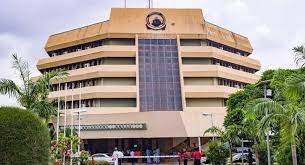The new Executive Secretary of the National Universities Commission (NUC), Professor Abdullahi Ribadu has unveiled a seven-point agenda aimed at addressing pressing issues in Nigeria’s university system.
Ribadu, who took over from outgoing Acting Executive Secretary, Chris Maiyaki, highlighted key reforms that would reshape higher education to include expanding access to higher education, enhancing funding, and stabilising the academic calendar, which has long been disrupted by strikes and inconsistencies.
Speaking at the handover ceremony in Abuja on Monday Ribadu said, “Access to university education is still a significant challenge, noting that although two million candidates sit for the Joint Admissions and Matriculation Board (JAMB) exams each year, only about 500,000 are admitted.
He stressed the need for greater investment in infrastructure, e-learning, and private sector involvement to bridge the gap and increase access to higher education.
A key priority for Ribadu is enhancing the financial health of Nigerian universities. “We must maximise both internal and external funding opportunities,” he said, outlining plans to build partnerships with international organisations and donor agencies to ensure better resource allocation and transparency.
Ribadu also emphasised the importance of digital transformation within the NUC, aiming to streamline processes such as accreditation, monitoring, and approvals. “We will digitise the commission’s activities to ensure transparency, efficiency, and ease of doing business,” he explained.
On the issue of academic quality, Ribadu promised to strengthen quality assurance mechanisms, ensuring that university programs meet global standards.
He further vowed to implement rigorous audits and assessments to uphold academic excellence.
A major focus of Ribadu’s reform agenda is stabilising the academic calendar, a persistent challenge that has led to confusion and disruption in university sessions. “We must ensure that university calendars are adhered to and that there is consistency in session timelines,” Ribadu stressed, noting the importance of collaboration with universities and unions to resolve these issues.
Ribadu also announced plans to revisit the laws governing the NUC, aiming to remove outdated regulations that hinder the commission’s ability to effectively manage Nigeria’s higher education system.
Earlier, Maiyaki praised Ribadu’s appointment as timely and essential, particularly in light of the ongoing challenges within the Nigerian university system.
He called for an urgent review of the NUC’s enabling laws to strengthen the commission’s ability to regulate the sector effectively.



